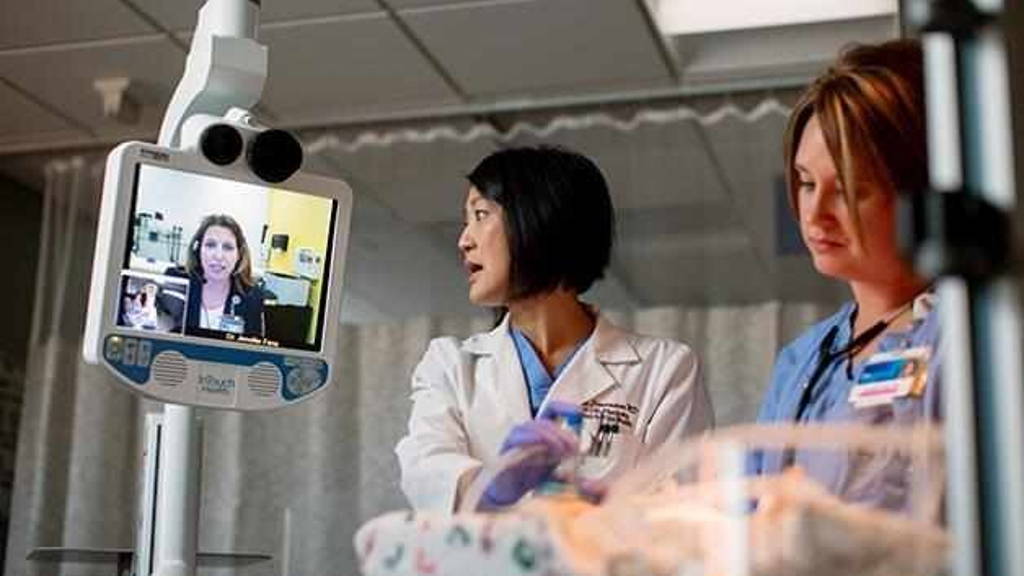On average some 10 percent of newborns require help breathing after birth. Every 1 in 1,000 newborns require more intensive resuscitation measures. For community hospitals less familiar with advanced newborn resuscitation interventions, these infrequent, high-risk deliveries may present challenges. A study published in Mayo Clinic Proceedings states that telemedicine consultations are a good option to help meet these challenges and positively impact patient care.
One outcome of the study is that enhanced access to neonatologists, who could remotely assess the newborn and guide the local care team through the resuscitation, allowed one-third of the babies to stay with their families in the local hospital. “This allowed the patients to receive the correct level of care in the right location — increasing the value of care,” says Jennifer Fang, M.D., a Mayo Clinic fellow in Neonatal-Perinatal Medicine and one of the study’s authors . “Also, the potential cost savings can be substantial.”
Mayo Clinic Proceedings is a monthly peer-reviewed medical journal that publishes original articles and reviews dealing with clinical and laboratory medicine, clinical research, basic science research and clinical epidemiology. Mayo Clinic is a nonprofit organization committed to clinical practice, education and research, providing expert, whole-person care to everyone who needs healing.
Read the Mayo study here
Positive impact on quality of care
During a 20-month study, Mayo Clinic’s Division of Neonatal Medicine worked with six health system sites to provide newborn telemedicine consultations. 84 telemedicine consultations were conducted to find out how telemedicine can be used to positively impact the quality of care provided during the first minutes of life, following a complicated delivery.One outcome of the study is that enhanced access to neonatologists, who could remotely assess the newborn and guide the local care team through the resuscitation, allowed one-third of the babies to stay with their families in the local hospital. “This allowed the patients to receive the correct level of care in the right location — increasing the value of care,” says Jennifer Fang, M.D., a Mayo Clinic fellow in Neonatal-Perinatal Medicine and one of the study’s authors . “Also, the potential cost savings can be substantial.”
Collaboration critical
The study also looked at how the local care team and neonatologist collaborated. Dr Fang: “Other research has shown that teamwork and communication are critical during neonatal emergencies. We wanted to assess how telemedicine affected teamwork and communication.” Providers responded positively to surveys that assessed teamwork and the impact of the telemedicine consult on patient safety and quality of care. “These results speak to the acceptability and clinical impact of this type of telemedicine project in community hospitals,” says Dr. Fang.Mayo Clinic Proceedings is a monthly peer-reviewed medical journal that publishes original articles and reviews dealing with clinical and laboratory medicine, clinical research, basic science research and clinical epidemiology. Mayo Clinic is a nonprofit organization committed to clinical practice, education and research, providing expert, whole-person care to everyone who needs healing.
Read the Mayo study here






